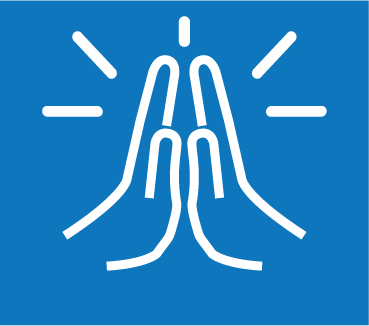WRITING A COURSE OF STUDY
Student Education Plan
A private school in California must offer instruction “in the several branches of study required to be taught in the public schools.” This is true for your child with special learning requirements as well. (Note: that they must be offered, not that every student will take all subjects, i.e. Spanish in 7th grade.) The branches of study are listed here.
If you live outside California you can find information through www.hslda.org.
What does a course of study look like when our student struggles? Especially if our student is one who will never learn history or science, or even reading or math?
Begin With Prayer
And talk with other parents about ideas and possibilities. You won’t get all of it, and you will sometimes think you are moving in a direction for one reason and it turns out there was another reason you never considered. Just go with faith and do the best job you can.
It might help to get an outside opinion. An example is when I sat down and looked at a high school SEP for a severely impaired child and suggested they work on social skills. A child with a friendly greeting wins hearts. The family loved the suggestion. Sometimes someone outside, your consultant if you will, sees something you missed. It is more like editing a paper than changing your plan. Once you get a plan in mind, it’s easy to miss the details by assuming they are all there.

Next, Get Your Ideas Into Categories
In our private school we a Moral category, which includes all the spiritual and character areas; Scholastic, which includes knowledge and skills; Physical, which includes health and stewardship; and Social, which is about training for adulthood callings and learning to be a productive citizen. You may prefer typical school topics or some other method of categorizing, but it does help to have a system.
The point of a course of study or SEP is to show what you intend to cover, sometimes adding a why, and the methods you plan to use to meet the goals. The more severely our child is limited in the academic sense, the more precise the goals and methods must be. We want to show, if possible, that the child is making progress.

Begin With Prayer
And talk with other parents about ideas and possibilities. You won’t get all of it, and you will sometimes think you are moving in a direction for one reason and it turns out there was another reason you never considered. Just go with faith and do the best job you can.
It might help to get an outside opinion. An example is when I sat down and looked at a high school SEP for a severely impaired child and suggested they work on social skills. A child with a friendly greeting wins hearts. The family loved the suggestion. Sometimes someone outside, your consultant if you will, sees something you missed. It is more like editing a paper than changing your plan. Once you get a plan in mind, it’s easy to miss the details by assuming they are all there.
Next, Get Your Ideas Into Categories
In our private school we a Moral category, which includes all the spiritual and character areas; Scholastic, which includes knowledge and skills; Physical, which includes health and stewardship; and Social, which is about training for adulthood callings and learning to be a productive citizen. You may prefer typical school topics or some other method of categorizing, but it does help to have a system.
The point of a course of study or SEP is to show what you intend to cover, sometimes adding a why, and the methods you plan to use to meet the goals. The more severely our child is limited in the academic sense, the more precise the goals and methods must be. We want to show, if possible, that the child is making progress.
Here is a sample of a simple Student Education Plan
Yours may be more detailed
Scholastic Development
- Math – not applicable at this time (in a subsequent year the student worked on counting by setting the table)
- Vocabulary – we will continue to speak to child and sing praise songs with her.
- Reading/Literature Spelling – Not applicable at this time (a suggestion might be for read aloud which does happen in this home and was just missed for the SEP)
- Handwriting – We plan to have child write a note each week. She will draw a picture and write her name (first and last) to send to a grandparent or friend.
- Listening/Speaking – We will work with child on learning new songs as well as practicing her familiar tunes.
- Science – not applicable at this time
- Social Studies – Learning to be polite and say hello and bye-bye, handshakes, and/or hugs etc

Course of study forms
Physical Development
- P.E. – Swimming as much as weather allows. Walking and working on learning to ride an appropriate sized tricycle.
- Health/Safety – Child will begin helping with meals, putting together sandwiches, opening cans, mixing ingredients together, making toast, etc.
- Household Skills –Child is continuing with her laundry as well as work on some basic cooking skills.
Social Development
Child enjoys art. We will provide her with paints, beads, and other crafts she enjoys doing in her free time.
Moral Development
- Reading/Literature Spelling – Not applicable at this time (a suggestion might be for read aloud which does happen in this home and was just missed for the SEP)
- Handwriting – We plan to have child write a note each week. She will draw a picture and write her name (first and last) to send to a grandparent or friend.
- Vocabulary – we will continue to speak to child and sing praise songs with her.
- Listening/Speaking – We will work with child on learning new songs as well as practicing her familiar tunes.
- Math – not applicable at this time (in a subsequent year the student worked on counting by setting the table)
- Science – not applicable at this time
- Social Studies – Learning to be polite and say hello and bye-bye, handshakes, and/or hugs etc
Here is a sample of a simple Student Education Plan
Yours may be more detailed
Scholastic Development
- Math – not applicable at this time (in a subsequent year the student worked on counting by setting the table)
- Vocabulary – we will continue to speak to child and sing praise songs with her.
- Reading/Literature Spelling – Not applicable at this time (a suggestion might be for read aloud which does happen in this home and was just missed for the SEP)
- Handwriting – We plan to have child write a note each week. She will draw a picture and write her name (first and last) to send to a grandparent or friend.
- Listening/Speaking – We will work with child on learning new songs as well as practicing her familiar tunes.
- Science – not applicable at this time
- Social Studies – Learning to be polite and say hello and bye-bye, handshakes, and/or hugs etc
Physical Development
- P.E. – Swimming as much as weather allows. Walking and working on learning to ride an appropriate sized tricycle.
- Health/Safety – Child will begin helping with meals, putting together sandwiches, opening cans, mixing ingredients together, making toast, etc.
- Household Skills –Child is continuing with her laundry as well as work on some basic cooking skills.
Social Development
Child enjoys art. We will provide her with paints, beads, and other crafts she enjoys doing in her free time.
Moral Development
- Reading/Literature Spelling – Not applicable at this time (a suggestion might be for read aloud which does happen in this home and was just missed for the SEP)
- Handwriting – We plan to have child write a note each week. She will draw a picture and write her name (first and last) to send to a grandparent or friend.
- Vocabulary – we will continue to speak to child and sing praise songs with her.
- Listening/Speaking – We will work with child on learning new songs as well as practicing her familiar tunes.
- Math – not applicable at this time (in a subsequent year the student worked on counting by setting the table)
- Science – not applicable at this time
- Social Studies – Learning to be polite and say hello and bye-bye, handshakes, and/or hugs etc

Course of study forms
